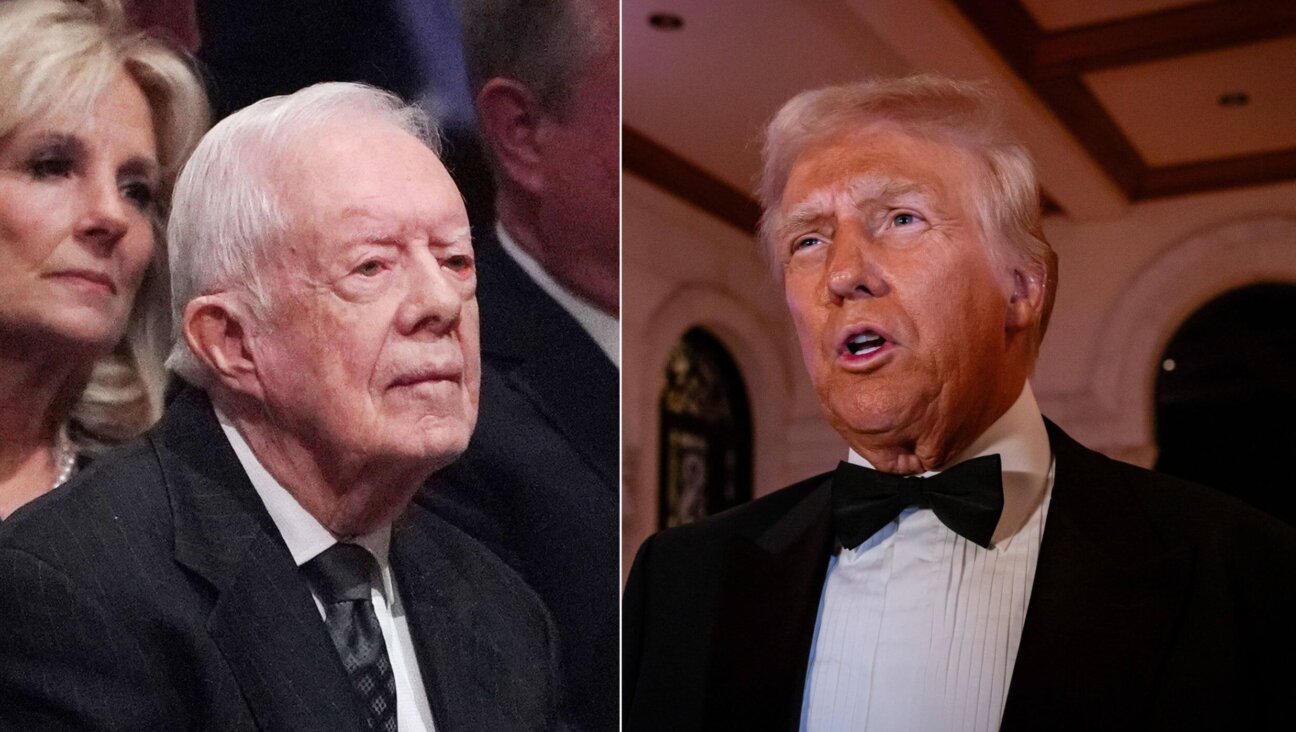Kansas Custody Battle Makes an Unlikely Liberal Out Of Orthodox Group
As one of the country’s largest ultra-Orthodox Jewish organizations, Agudath Israel of America is hardly known as a liberal trailblazer. But in an effort to help an Orthodox teenager at loggerheads with his less observant father, the organization has forged an unusual alliance with progressive legal groups seeking to expand the scope of children’s First Amendment rights.
Joining a friend-of-the-court brief filed by an array of juvenile-rights groups and legal scholars, the New York-based advocacy group has waded into a bitter and long-standing custody battle that pits Kansas City, Kan., resident Robert Solko, 49, against both his ex-wife and their four children. The custodial parent since 2004, Solko renounced Orthodox Judaism sometime after his divorce 13 years ago. He now forbids his youngest child, 13-year-old Ephraim, to observe such Jewish rites as keeping kosher and wearing a yarmulke, according to advocates. The protracted feud came to a head last month when local police reportedly picked up the boy after he allegedly ran away from his father’s house during the Tisha B’Av holiday.
While the Solko case is particularly acrimonious, its general outlines are not uncommon: As divorce has become more common over the past generation and courts have grown more willing to grant custody to fathers, judges are increasingly being called upon to mediate religious disputes between divorced parents. At the same time, a series of legal decisions has expanded the rights of children and adolescents in several areas, including free speech, reproductive rights and religious expression. Jewish advocacy groups, meanwhile, are divided over how best to advocate for strong First Amendment protections for Jewish families. In one recent high-profile case, the American Jewish Congress — which often finds itself to the left of Orthodox groups on constitutional questions — argued that a Jewish father in Oregon has the right, as the custodial parent, to circumcise his 12-year-old son. Agudath Israel refused to join the brief in that case, officials say, because the organization feared it did not show enough deference for the rights of the child.
“Under the Constitution, children have certain independent free-exercise rights,” said Mordechai Biser, associate general counsel for Agudath Israel. “At what age they start, and how extensive they are, is a gray area in the law, but our position in the [Solko] case is that once a child becomes 13 years old and has very strong and clear beliefs — under this set of circumstances where [the opposition] is entirely at odds with the way both of the parents raised the child — those are rights that have to be given cognizance by the courts.”
Although neither Solko nor his ex-wife, Julie Ann Bergmann, 51, was raised in an Orthodox home, both had independently embraced Orthodoxy before dating, and as a married couple they spent six years living in Israel, where they became increasingly observant. After the couple divorced in the mid-1990s, Solko apparently became estranged from Orthodoxy, and transitioned to a level of observance more in line with Reform. Bergmann, meanwhile, went to live with their children — now ages 13, 18, 21 and 23 — in the ultra-Orthodox Flatbush neighborhood of Brooklyn, with the sons attending yeshiva day schools. The three oldest children, estranged from their father, currently live in Brooklyn. Bergmann relocated to Kansas City in 2004 after ultimately losing full custody of Ephraim and his brother, Moshe. She is currently seeking changes to the custody arrangement that would allow Ephraim to attend school in Brooklyn while spending summers with his father.
Both Bergmann and Solko declined to answer questions about their case.
In their amicus brief, Agudath Israel and its allies — which include a half-dozen child advocates at such law schools as the Boalt Hall School of Law at the University of California, Berkeley — argue that the final arbiter of the boy’s religious upbringing should not be the courts, or even his parents, but himself. Their brief argues that under both the U.S. Constitution and the Kansas State Constitution, minors enjoy First Amendment rights just as adults do.
The argument is an unusual one for Agudath Israel, which has in the past supported parental rights, backing, for example, parental notification laws for female adolescents seeking abortions.
Marc Stern, general counsel for AJCongress, said he was concerned that Agudath Israel might unwittingly help set a precedent “that children have their own rights, even in defiance of their parents,” which could make it harder for parents to make religiously motivated decisions on behalf of their minor children.
For example, one liberal legal scholar, James Dwyer, a professor at the William & Mary School of Law, has argued that the adequate protection of children’s rights requires substantial government regulation of religious schools.
In the Kansas case, documents reviewed by the Forward suggest that Robert Solko, having undergone his own religious evolution, is struggling to transmit his own Jewish, if non-Orthodox, beliefs to his son.
A parenting plan drafted by Solko in late 2005 stipulates that neither parent “should denigrate the other’s beliefs or allow such during their parenting time,” and lists “secular education” as the number two priority for the children, after their health.
The plan indicates a desire for both parents to “encourage their children to experience a wide range of activities and learning experiences.” It also requests that Ephraim be forbidden from praying while at school, and forbidden from wearing any religious garb, including a yarmulke.
Officials at Agudath Israel acknowledged that they themselves were motivated to get involved in the Solko case because it concerns a child who wishes to practice Orthodox Judaism, but insisted that they are comfortable with the possibility that not all cases would cut in their favor.
“As a matter of law, we wouldn’t argue that a 13- or 14-year-old child would have no rights if their parents were forcing them against their will, let’s say, to attend a religious school,” Biser said. “That would be an inconsistency, and that’s a position that I believe we have never taken.”
A message from our Publisher & CEO Rachel Fishman Feddersen

I hope you appreciated this article. Before you go, I’d like to ask you to please support the Forward’s award-winning, nonprofit journalism so that we can be prepared for whatever news 2025 brings.
At a time when other newsrooms are closing or cutting back, the Forward has removed its paywall and invested additional resources to report on the ground from Israel and around the U.S. on the impact of the war, rising antisemitism and polarized discourse.
Readers like you make it all possible. Support our work by becoming a Forward Member and connect with our journalism and your community.
— Rachel Fishman Feddersen, Publisher and CEO























